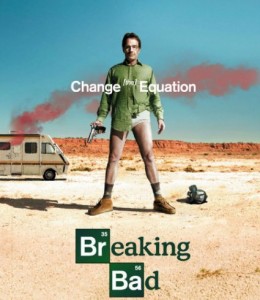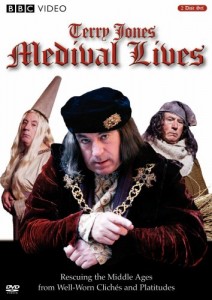As many of you know, my most common form of artistic expression is making lists. Usually these free-form poems take the form of “to do” and “groceries,” but occasionally, something with more substance emerges. For example, my book group is currently making a list of books we know we should have read, but haven’t. We’ve also asked one of our members to compile a list of must-read graphic novels.
As it’s summer, I’m sure we’re all thinking about expanding our reading, our viewing, our cooking . . . something about summer makes us want new things. So I want to make some lists, but I need your help. Help me expand the following lists & help me think of new lists.
Shows you’re probably not watching, but should be (netflix them):
1. Whitest Kids U’ Know–it’s the next generation of sketch comedy (currently on IFC)
2. Breaking Bad–the dad from Malcolm in the Middle finds out he has cancer. To provide for his family, he uses his chemistry teacher powers to make meth (currently on AMC).
3. Slings and Arrows–this series ran for three seasons. It’s a Canadian show about a repertory theatre troupe. Their productions mirror the comic drama of their lives. Very funny. Mark McKinney, of The Kids in the Hall, is a writer, creator, and star.

Websites you should be checking out:
1. www.mentalfloss.com This is the companion site to Mental Floss magazine, which I love. It feeds all of my trivia needs, but with a wonderful dry humor. The website not only features articles from the magazine, but also great work by bloggers–they have links to other cool pages, quizzes, and daily trivia articles on awesome topics (best libraries, strange but true ways of death, etc.)
2. www.theonion.com This amazing satire site now has video reports. The satire is so good that some people think the news is real. For example, years ago, they reported on the annual “gay agenda convention,” which made fun of the idea that there is a gay conspiracy/agenda. Several preachers sent the article to their congregations, citing it as evidence of said gay agenda.
While you’re perusing The Onion, don’t forget to go to the AV Club, which features media reviews, interviews, and Dan Savage’s sex column.
3. http://antwrp.gsfc.nasa.gov/apod/archivepix.html Each day, they feature a different astronomy picture. Discover the cosmos!

Nonfiction authors you should be reading:
1. Sarah Vowell–she’s a favorite of NPR and Jon Stewart. Her writing is clever & good for you history buffs.
2. Mary Roach–she’s a science reporter with three great books. Want to know how cadavers are used for research & health? Want to know how people investigate the afterlife from a scientific point of view? Want to know what sex researchers are up to in their labs? Yes, you do.
3. Terry Jones–yes, the Terry Jones of Monty Python, who got his degree in medieval studies. Check out his editorials for The Guardian & his amazing Medieval Lives, where you can learn about the actual lives of knights, minstrels, and damsels.

Okay, I have to get back to grading. Add to the list and to the list of lists!




 I recently read
I recently read 



Recent Comments